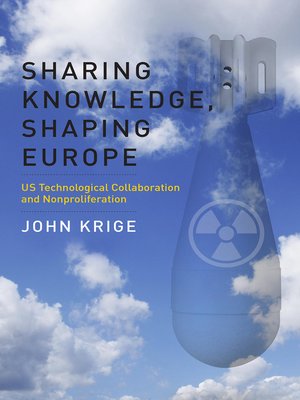Sharing Knowledge, Shaping Europe
ebook ∣ US Technological Collaboration and Nonproliferation · Transformations: Studies in the History of Science and Technology
By John Krige

Sign up to save your library
With an OverDrive account, you can save your favorite libraries for at-a-glance information about availability. Find out more about OverDrive accounts.
Find this title in Libby, the library reading app by OverDrive.



Search for a digital library with this title
Title found at these libraries:
| Loading... |
In the 1950s and the 1960s, U.S. administrations were determined to prevent Western European countries from developing independent national nuclear weapons programs. To do so, the United States attempted to use its technological pre-eminence as a tool of “soft power” to steer Western European technological choices toward the peaceful uses of the atom and of space, encouraging options that fostered collaboration, promoted nonproliferation, and defused challenges to U.S. technological superiority. In Sharing Knowledge, Shaping Europe, John Krige describes these efforts and the varying degrees of success they achieved.
Krige explains that the pursuit of scientific and technological leadership, galvanized by America's Cold War competition with the Soviet Union, was also used for techno-political collaboration with major allies. He examines a series of multinational arrangements involving shared technological platforms and aimed at curbing nuclear proliferation, and he describes the roles of the Department of State, the Atomic Energy Commission, and NASA. To their dismay, these agencies discovered that the use of technology as an instrument of soft power was seriously circumscribed, by internal divisions within successive administrations and by external opposition from European countries. It was successful, Krige argues, only when technological leadership was embedded in a web of supportive “harder” power structures.






